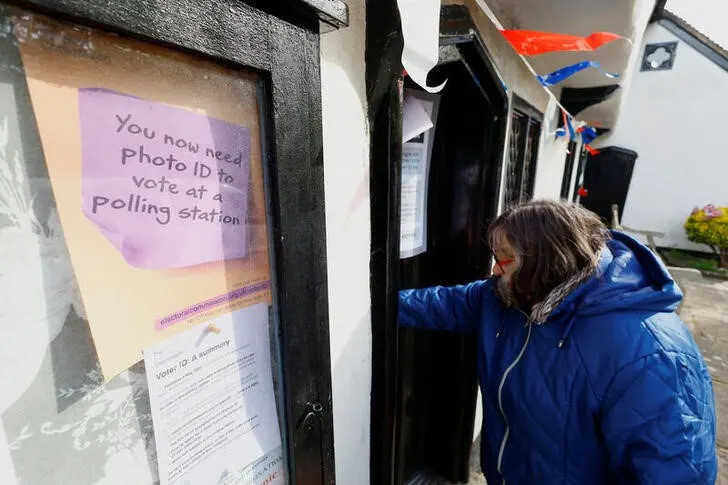More than 13,000 people were denied a vote in Eng-lish local elections this month because of the gov-ernment’s new identification law, with those in poorer areas most impacted, according to a Reuters survey of local authorities.
Voters in England were legally required to pro-duce photo ID for the first time at the May 4 elec-tions, with the government saying it was essential to combat election fraud.
But the overhaul was criticised by many opposi-tion politicians and campaigners who said it was intended to suppress turnout and was disproportion-ate to the historically low levels of in-person electoral fraud in Britain.
Furthermore, Jacob Rees-Mogg – a government minister when the law was passed – said last week that the move had affected elderly voters who tradi-tionally voted for the governing Conservative Party, indicating that it had also hoped for a different out-come.
“Parties that try and gerrymander end up finding their clever scheme comes back to bite them, as dare I say we found by insisting on voter ID for elections,” he told the National Conservatism conference.
Reuters collected data from 202 of the 230 au-thorities in England that held elections, in which the governing Conservative Party suffered heavy losses. The remaining 28 were either still compiling the figures or did not respond to Reuters’ request.
Out of the top 20 councils that turned away vot-ers, 15 were among the most deprived areas in Eng-land as measured by the government’s deprivation index, the survey found.
Clive Betts, an opposition Labour Party politician and chair of a parliamentary committee which will look at the new rules, said they were “undermining and undervaluing our democracy.”
A government spokesperson said: “We are en-couraged by the roll-out and we are confident the vast majority of voters will have cast their vote success-fully”.
Betts also said the total number prevented from voting would likely be much higher because some who do not have ID did not bother to turn up at polling stations.
Reuters’ findings showed 33,509 people were initially denied a ballot paper at polling stations be-cause they did not have the required ID. Of those, more than 20,000 later returned with the correct ID and 13,085 did not. The data was compiled from information pub-lished online, as well as requests by phone, email and under the Freedom of Information Act.
It was not possible to produce a national figure for the percentage of voters at polling stations denied the right to vote as some local authorities only pro-vided total turnout, including postal votes which did not require ID.
In cases where councils did, only a small pro-portion of the overall voter base were turned away with a mean of 0.24% across 98 local authorities.—INP










